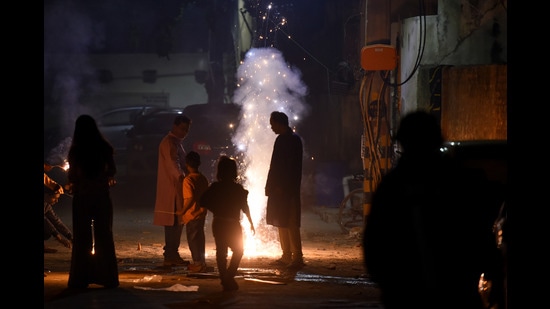The prickly problem of greater-good debates
Forcing people to change their personal choices in the interests of a greater good could have far-reaching implications. But at some point of time, each of us will have to consciously make choices based on what’s good for the environment
Whether it was ignorance, the reluctance to change their way of life, or a life-long commitment to whataboutery, people around the country violated localised bans on the use of fireworks on Deepavalli. The impact was immediately visible.

In Delhi, for instance, air quality rapidly deteriorated, with the fireworks pushing the usually bad air at this time of the year, already made worse by stubble burning in Punjab and Haryana , into the so-called severe zone. In the absence of the fireworks, the air quality may have stayed in the very poor zone. And in the absence of the fireworks and the stubble burning, it may have been poor. Which, at this of the year, is actually good for Delhi.
It’s important to acknowledge this — barring the monsoon months, Delhi’s air quality is rarely good (almost no impact on the health of people) or satisfactory (a level where it may cause some problems for those with other respiratory or health issues).
According to a 2020 study, AQI in Delhi is usually around 250 (which falls squarely in the poor category). If the monsoon months are excluded from this, the average is likely to be higher. It’s easy to see what takes it to, say, 462, the average AQI reading on Friday, 6 November, a day after Deepavalli. In this case, the answer is: stubble burning (responsible for 36% of PM 2.5 in Delhi’s air on Friday according to the System of Air Quality and Weather Forecasting and Research or SAFAR), and fireworks. SAFAR does not put out data on contribution of fireworks (unlike stubble burning), likely because this is restricted to a few days in a year, although its air quality forecast on Friday said that “fireworks emissions on the night of Diwali degraded air quality from the very poor to severe category as predicted”. Interestingly, on November 4, the contribution of stubble burning (to overall PM 2.5 levels in Delhi) was 25%. On Thursday, Delhi’s average AQI was 382
In a city with good air through the year (Chennai and Bengaluru for instance), it may be easier to condone a temporary spike in pollutants (that still does not take the AQI into the very poor or severe zones) than it is in Delhi. At least, that’s the conclusion one can draw from science and data. But science (or even good sense) doesn’t always fare well when up against way-of-life arguments, even when the stakes are personal (the health of self, family, and friends in this case) .
Take vegetarianism, for instance. There’s enough science to show that plant-based diets are better for the environment; indeed, vegan diets are considered the best from the perspective of emissions. Will people go vegetarian for the sake of the environment? Or avoid non-essential (read: recreational) travel?
I’ve picked food and travel because both are multi-trillion industries, and forcing people to change their personal choices in the interests of a greater good could have far-reaching implications.
This is the prickly problem of greater-good debates.
And it’s entirely up to each of us how we deal with it. But at some point of time, each of us will have to consciously make choices — on the food we eat, the clothes we wear, whether we travel or not, and how we celebrate – based on what’s good for the environment. Net-zero aspirations and targets shouldn’t be restricted to countries alone.
R Sukumar is the editor-in-chief of Hindustan Times
Pulp-it is a weekly column for HT Premium subscribers
The views expressed are personal
All Access.
One Subscription.
Get 360° coverage—from daily headlines
to 100 year archives.



HT App & Website







